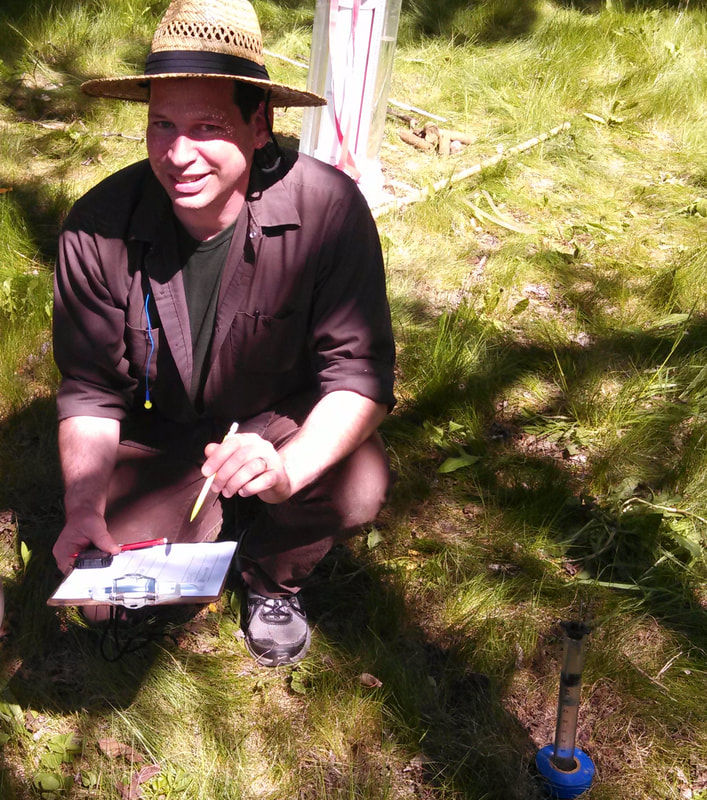I like the interdisciplinary realm because it forces two seemingly unlike disciplines into one with a neat name.
What are your undergraduate and graduate degrees in?
Physics, University of Michigan, Ann Arbor; Environmental Science, The Ohio State University, Columbus.
How did you arrive at working in/thinking about ecohydrology?
When I was making field measurements and realized that the abiotic and biotic components of an ecosystem really do interact. In my dissertation research, I employed earthworms with different feeding and burrowing habits as ecosystem engineers to perturb biogeochemical and hydrologic processes in agroecosystems. It was all very exciting, seeing patterns in how biota modulated resources and their availability.
What do you see as an important emerging area of ecohydrology?
Urbanization and its phases of development and senescence have always been fascinating to me, and drives a lot of my research in wastewater and stormwater management. I saw that there was a yawning gap in our understanding of hydraulics in urban landscapes and their soils. From this curiosity and my impatience with existing, incomplete data (as age-old tables of suggested parameters...), I undertook assessments of urban soils, with a focus on their taxonomy and hydraulic characteristics. I have applied this data to understand the role of these unique landscapes in their regulation of urban hydrologic cycles, and capacity for rendering ecosystem services to citizens.
Do you have a favorite ecohydrology paper? Describe/explain.
Climate, not conflict, explains extreme Middle East dust storm. Anthony J Parolari et al 2016 Environ. Res. Lett. 11 114013 shows us how an ecohydrological perspective can help to unpack the environmental impacts of the largest-scale controls (climate) on the human experience.
What do you do for fun (apart from ecohydrology)?
I love to spend time with my teenage children and come to understand their new worldview, take pictures, play electric bass, and create sounds on old, wheezing analog music synthesizers.

 RSS Feed
RSS Feed